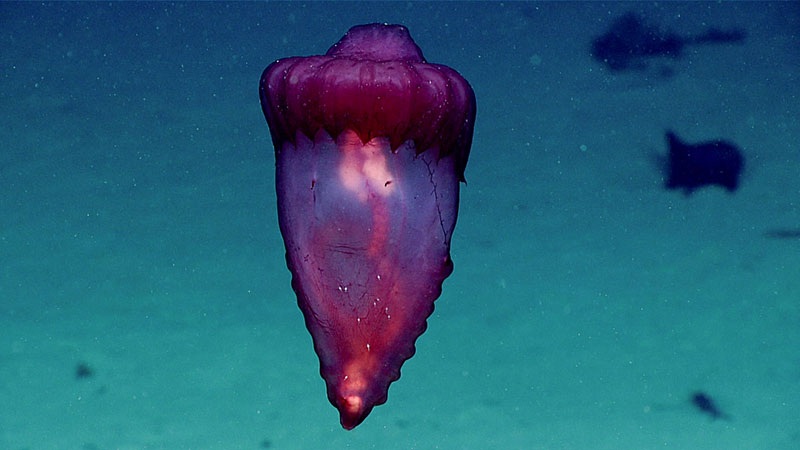How does pressure impact animals in the ocean?
The impacts of pressure at ocean depth are less for organisms lacking gas-filled spaces like lungs or swim bladders.

Many deep-sea organisms, such as this Enypniastes eximia sea cucumber, lack lungs or gas-filled spaces that make them more susceptible to the intense pressures of the deep ocean. Image courtesy of NOAA Office of Ocean Exploration and Research. Download image (jpg, 34 KB).
On land, we experience an internal pressure of one atmosphere (atm). As organisms with gas-filled spaces upon which we depend—lungs—we tend to focus on pressure at great ocean depths as a big deal...and with good reason. Pressure in the ocean increases about one atmosphere for every 10 meters of water depth. So, for example, at a depth of 100 meters, the pressure will be approximately 10 atmospheres or 10 times greater than the pressure at sea level.
Travel to 2,000 meters below the ocean’s surface, and the pressure will be approximately 200 atmospheres. That's a lot of pressure! Most organisms with gas-filled spaces (like humans) would be crushed by the pressures that other deep-sea life experience.
At deep-sea depths, the pressure is unimaginable, yet many creatures have no problem living there. This is because most things living in the deep ocean are largely water and water is incompressible. Without gas-filled spaces like lungs or swim bladders, organisms in the great deep are less affected by pressure than we imagine. Some ocean species perform vertical migrations of 1,000 meters each day, experiencing a 100-atmosphere range of pressures with no harmful effects.
Deep-sea pressures do affect chemical reaction rates somewhat, speeding up reactions. Organisms adapted to these pressures may experience metabolic problems when brought to the surface for study.
For More Information
Ocean Zones (pdf, 434 KB) – Learning Science through Ocean Exploration
Now, Take a Deep Breath (pdf, 548 KB) – Exploring the Submerged New World 2009